|
It occurred to me that even the most social among us share only a fraction of ourselves. The truth is that we barely know the people we work with, the people we love, and the people who raised us. The only people we know are characters in books because every thought and motivation is portrayed on the page. We all have secrets and we will all be surprised by the people closest to us. Do you remember the first time a parental figure came crashing off that pedestal? I sure do. I found it devastating. My perception of that family member was the egg. It didn't end well for the egg. I would estimate I verbally share only 2% of what runs through my head. I'm on the quiet and introspective side of the spectrum. I view myself as socially awkward and can be very shy, although I've learned to be a bit of a chameleon when necessary (conventions, day job, work functions, interviews, etc.). That change only came about because my shyness was often interpreted as snobbery (and still is when I give in to it), and I feel terrible about giving the impression that I'm snubbing other people for some perceived shortcoming. When someone first told me they interpreted my shyness as me not liking them, it blew my mind. I didn't engage with them because I had already assumed they wouldn't like me. My point is that so much of our thoughts and emotions are censored that it's impossible to really know one another. In some ways, this secrecy is a very good thing. Public perception versus privately held complexity reminds me of The Strange Case of Dr. Jeckyll and Mr. Hyde, which I'm sure was the author's intent. While I generally live by the saying "honesty is the best policy," I think Charlaine Harris did a good job of conveying the damage that would be caused by hearing the snap judgments and anger of others in her Sookie Stackhouse series. There have been times when I've been irritated with someone's behavior only for them to surprise me by doing something kind. In an instant they went from someone I couldn't wait to run away from to someone I would be proud to know. My husband can drive me up a wall (and I know the feeling is mutual), but my love for him far outweighs the few moments in our ten year relationship when the temptation to storm out of the house, get in my car, and keep driving popped into my head. I've always had an inclination towards the dramatic, even in my daydreams. Judging people in a split second is a survival mechanism that is especially prominent in those of us who have been abused. I don't mean buying in to the illogical fears that fuel misogyny, racism, and homophobia. I would posit that those fears are taught and fueled by people who either fan that flame for their own gain or have bought into the rhetoric hook, line, and sinker. Humans exist on a spectrum, and an asshole is an asshole no matter the race, creed, or gender identity. The survival mechanism I'm referring to is the ability to read body language and facial expressions that we've all been developing since infancy. Accurately judging the mood of a person or crowd helps us determine intent and avoid injury. Verbal interactions can help balance out or fuel initial perception. This makes the words we choose to share all that more important. Whether you're an author or interacting with another human, your words have a lasting impact. Delivery is equally crucial of course, but your words are what you leave behind. They are what people share when remembering you after you are gone. In the U.S. corporate environment, the expectation is that we behave like a bunch of unemotive robots. This applies to all people. I've heard women classified as bitchy or shrill if they are passionate about a topic while men are...well, just passionate. I've heard men referred to as weak if they didn't defend their work. Sniping at one another is fine as long as no one cries or yells, and if you get defensive, the sharks will scent that blood in the water and bait you for the fun of it. Don't cry in public. Ever. Body language is key. If you appear flustered or nervous, you're not knowledgable and your opinion is worthless. The corporate environment is like a parade of social norms on steroids. I figured out early that confidence is key to gaining trust, I suck at maintaining a poker face, and closed up body language (crossed arms, lack of eye contact) puts people on the offensive. I'm very logical and direct, and I'm still learning to lead people to a conclusion because it goes over much better than just telling them they're wrong. There are people who play the political game and people who shoot themselves in the foot by navigating the social structure poorly. I will tell you that my ruthless honesty has led to several foot wounds. What we say is what we are judged by at work. What we choose to share with other humans is how we are remembered. All of us carry invisible burdens. If someone is having a hard day and says something cruel, I will forever know them as the asshole who snapped at me on the bus. I will never know that they're worried about a child or lost their job that day. When someone unleashes on me, I try to remember that they have a secret backstory. They're reacting to more than me. But I will always remember them for the words they chose to share. Hate is very popular right now. If you haven't noticed, I'd like to know your trick so I can unplug on occasion. There have always been bullies, but in today's world you can't leave them behind at school or work. They're everywhere, and it's more in your face than ever with social media. The perceived anonymity of the internet has led to people attacking anyone who makes them feel different. It doesn't take a psychologist to see that this is probably because they perceive themselves as unaccepted in the real world. People have made lucrative careers out of trolling, and we're saturated in hateful commentary. As any of us who have dared express our opinion on the online video gaming culture or give off a feminist vibe (sometimes just saying the word 'feminist' sets people off) know, the trolls are restless and hungry. As messed up as I think it is that we have to squash emotions in the corporate environment, there are rules and people play by them. I don't like all of the rules, and many of them need to be changed, but I know what to expect. The internet removes that pause I see people take face-to-face to censor themselves. Very few people want their real name and face associated with bullying behavior even if they lack the empathy to hold back for the sake of others' feelings. On the other hand, snark has been popular for a long time, and meanness is a fallback crowd pleaser. When a comedian's joke falls flat, they often turn to making fun of specific members of the audience. Sometimes ripping apart the audience is *the* shtick. It's funny until they turn on you, and then you're forced to laugh because in that moment you hate what they're saying and that you took joy in laughing at someone else. Mean is a defense mechanism used by people who lack confidence and can't handle criticism. We've seen it a lot this past year in particular. When a certain very public figure was accused of doing something wrong, he deflected the focus onto someone else by either drawing attention to physical flaws or maligning their character. It reminded me of every bully I witnessed in school, but what scared me was how effective the tactic is. Humans are fragile. It's impossible to know whether a moment of thoughtless or calculated cruelty is the final kick in the ass over the edge of despair. Kindness is hard. It takes more energy at times. It can feel weird. It's not popular. It's something I still have to consciously work towards. But a kind word at the right moment can be life saving. Hug your loved ones and remind your friends why you chose them over all of the other humans who surround you. Life is fleeting and the words we choose to share with others are our legacy. How do you want to be remembered?
0 Comments
by Camela Thompson I was going to write about videogames, framing an argument for Diablo III as more than just a loot-crazed hack-and-slash fest, but something happened. A four-legged desperado took over our lives and now I'm sitting on my porch with Annie and my laptop literally waiting for the dust to settle. Diatomaceous earth to be more specific. The stuff clings to the top of the carpet in baby powder fine clumps, turning our house into a polka-dotted vision. My grandparents helped raise my brothers and I, and they always had at least one dog. My grandfather had a tough childhood and clung to memories of pets as the bright spots in his life. His mom was a divorcee, a rarity in the deep South in the early 1900s, and they moved frequently, living with family members who would take them in. He doesn't talk about it too often, but I suspect the family dogs treated my grandfather more like family than the relatives letting an asthmatic, intelligent kid take up room and food at the table. The first dog I can remember, Siegfried, was my grandfather's dog I can never remember my grandparents without a dog. As soon as one passed away, Grandpa was up at the pound, looking for his next mutt. I introduced them to Bernese mountain dogs. Actually, I begged to have a show dog and paid for it with money I scrounged up painting whatever I could sell. After their first Bernese, they couldn't imagine getting another breed. That had to change recently, and it wasn't without epic resistance. Try telling a man who built his house with his own two hands and spent his days digging irrigation ditches between working three jobs that he can't have the dog he wants. How do you tell a man who has too much pride to use the walker he needs that he can no longer handle a dog? How do you tell a strong-headed patriarch he isn't making sound decisions? Until the last five years, he could physically handle a big dog. Things have changed quickly. Proud Grandpa showing off Bogey's Costco employee badge Their last Bernese mountain dog, Bogey, was a handsome, good-natured guy with a bunch of serious structural issues. Wobblers is a terrible disease, and his neck kept him slow and docile. My ninety-year-old grandfather loved taking him to Costco and sit out front, talking with anyone who would pause long enough to say, "Hello." When Bogey died, Grandpa's social circle immediately shrank. He missed Bogey, but I think the bigger void was the ability to go socialize. We waited for the grandparents to realize on their own that one-hundred-thirty pounds of dog was too much. The thought of them getting a puppy scared us all. They would be stubborn and insist on taking it to Costco or for a walk (yes, Grandpa still drives). Without the physical ability to control an animal that size, there were too many dangerous scenarios to list them all. We waited months, hoping the Bernese fervor would die down, but my grandfather taught himself how to use the Internet and started calling breeders. Lance and I also got a few phone calls about refinancing opportunities he had stumbled across and we had to have a serious security discussion. Mom had to bite the bullet and have some tough conversations of her own about how a puppy would be a terrible idea, but she couldn't bring herself to tell him the truth. A good breeder would not allow a ninety-year-old drive to their kennel and pick up a dog. The sad truth is that he can't safely handle a dog and the odds of the animal living longer are very high. When Mom corralled us all into driving to Puyallup to check out a mutt she had spotted on Petfinder, he was told this to his face by the adoption volunteers and we had a very quiet, sulking car ride back home. His voice was hurt gravel. "They won't let me adopt a dog. They said it was an age thing." Mom was allowed a dog, though, and since they all live together, they could share. It gained appeal after the sting wore down of learning that even though he had lived longer and seen more, he can't do some things anymore. We talked to the adoption personnel and I emphasized the need for a calm, social animal, and they brought out one of the most pathetic creatures I've ever seen. He came out of his cage and flipped on his back on our feet. He had no leash skills, but wouldn't pull, dancing in circles at the end of the leash to avoid putting any pressure on the lead. Even with other dogs walking by, he was as light as a feather. He loved people, pressing into them and closing his eyes in bliss at any contact. Even Annie liked him. He was perfect. "Spencer" was shipped up to Washington from a high kill shelter. The best guess was that he led life on the street as a stray. He has had zero training, didn't know what stairs were, and shied at the carpet the first time he saw it, so this is entirely possible. He also has an affinity for diving on anything that looks vaguely edible and has scabs all over his face and neck from getting attacked by other dogs. He is severely underweight. Say a harsh word and he cowers on the ground. Even after all of that, he is entirely affectionate, crawling onto any lap that will have him. He is a bit obnoxious because he isn't neutered, but he respects Annie's terse warnings and plays well with her. He loves kids. My family was putting in a fence and this guy will take off if left to his own devices. He's used to life on the road and won't look back. How do you call back a dog who doesn't know his name and doesn't trust that he'll get his next meal? Add in that he still has all of his parts and loves the ladies, and you can see how crucial it is that he's always on leash or in a yard fit for keeping in convicts. They were going to leave him at the pound while this was done. I offered to take him, but only if I could call him Spartacus. It was the most inappropriate name I could think of for a scrawny mutt. They let me because I train dogs and we could get him on a schedule and start the housebreaking (they named him Benji - we'll see which sticks). These are blurry because he's literally rolling on the couch At first things were great. His zest for his new life was a joy to watch as he rolled on every single surface available to him. He crammed himself in throw pillows and managed to scoot along the entire length of the couch on his back. He rolled on our bed, paying special attention to our pillows. He had no manners, so his feet bounded on counters and table tops. The world titled the first time he went poop. Lance leaned over and I heard him swear. Lance rarely swears. Lance rarely mutters. I knew it was bad. Spartacus had worms. Fast forward to us ripping every blanket, pillowcase, and cover off every piece of furniture he had rolled on. I spent hours wiping down surfaces with anti-bacterial wipes. His kennel was a cornucopia for tape worms and Annie had been her piggy-self, hoovering crumbs off the floor. Annie sleeps on our bed, or at least she did until we figured out her odds of also getting worms were 100%. Traffic in Seattle sucks. The morning we saw live worms, I drove a couple hours to get him into the only vet who could squeeze him in on such short notice. He had already been wormed, but not for THESE worms. Special mega worms. Great! We were instructed to brush his backside after each trip outside (she even pointed out the vile things clinging to him as we spoke). Essentially, our entire house was contaminated and we have the reason why he's so emaciated. Under the hair is skin and bones Spartacus is housebroken if kept on his schedule. He does well in his crate during his meals and ours to prevent him from diving near any food prep surface or table. He's bathed, wormed, and we're working to get weight on him. He's getting home cooked meals that are balanced (I recommend Unlocking the Canine Ancestral Diet - we cook our dogs' food). We tried getting him switched to canned food to make it easier on my family, but he won't touch the stuff and is already emaciated, so he's on high end stuff for now. Lance jokes that he's like the redneck who hit the lottery and refuses to look back. We've vacuumed everything and put down diatomaceous earth wherever the dog has been (carpet, couch, dog bedding). Annie gets to sleep in her kennel for a while until we can test her and get her wormed. Spartacus is at home with Mom and the grandparents, but he'll visit me during work days. I check in frequently and worry about him escaping because my grandparents can't move quickly anymore. They're prone to falling and both have had bad spills recently, which is especially scary with them on blood thinners. It took us time to realize they would fall with or without a dog and it was important to have an animal in the house. We've rigged exercise pens around the doors to prevent Spartacus from getting out and they are lining the wider gaps in the fence with chicken wire. He's still looking for a way out, but his wonderful temperament has everyone warming up to him.
Grandpa has always prided himself on doing every project himself. I remember hanging off his flexed bicep as a young girl, the product of his hours spent digging ditches. The drastic decline in his physical ability has led to depression. We think he likes the dog, but the past few days he's been questioning whether or not they should have one. We had to help put in the fence, something he wanted to do by himself but was too dangerous given his instability. This has been a difficult couple weeks. Hopefully things will brighten up with a dog who is more than happy to crawl in their laps. by Camela Thompson There were some pretty choice rants about Mother's Day on my Facebook feed this weekend. I found it odd that the majority were by mothers. A few felt that those of us who choose not to be mothers are slighted by the holiday and are made to feel like we are less of a woman. As someone who has made this choice, I disagree. I also saw people talking about their estrangement from their mother or about how much they miss their mother who has since passed on. There are more women out there who want to have children and can't, or have felt a loss greater than I can ever imagine. It reminded me that all holidays are fraught with emotion--veritable minefields that dredge up memories that are both pleasant and horrifying. This Mother's Day I felt profoundly lucky. I feel blessed to have a mother I am close with, and doubly lucky because I can still enjoy the day with my grandmother. That sounds bleak now that I've typed it out, but she has progressed through her octogenarian years with the same feisty humor I have always seen in her. All three of us are flawed. Some of those flaws have been unintentionally passed down. The wit, creativity, stubbornness, and weird twist we all put on the world are qualities that have served me well. I love them very much and am glad there is a day that reminds me to thank them. My beautiful mom and I on vacation. The shades were fashion forward. I will never have children. In a city where cats outnumber dogs and dogs outnumber children by nearly 2:1, it's not something I get a lot of flak about. Sure, there's always that friend who is so busy basking in the glory of her choice to be a mother that unintentional barbs get thrown out (my favorite? "you don't know what it's like to be a woman until you've gone through the miracle of childbirth"). For the most part, I've noticed women defending their choice to be parents. In a country hyper-focused on profitability and hours spent at the office, they have to fight for every day they get off. The work culture tends to mow over moms, and doesn't give them much room if something were to go wrong. I don't fully understand their pain, but I know their treatment is wrong. There are a lot of reasons why we decided not to have children. I have systemic lupus and have had days where I needed help taking care of myself. I couldn't imagine hearing the cry of my child on a day where I couldn't even dress myself (that hasn't happened for a very long time *knock on wood*). The hormone fluctuations that come with having a child can knock lupus patients into a tailspin. My doctors have warned me that it would be best not to have kids, but they would support me if I felt I needed to have kids. The reason why I'm totally okay with all of this even though I pictured myself with a minivan and three kids by this age? I never caught "baby fever." The biological drive to procreate didn't crush me over the head. Occasional twinges aside, I am not maternal. I love my nieces and nephews fiercely, but that's enough for me. I thought my neighbor's squalling infant was a dying cat for God's sake. My grandparents and one of my grandmother's paintings. I don't feel that my decision not to have kids makes me any less of a woman. How I feel about this on a visceral level is what matters, not the opinions of others. I'm lucky that I'm happy with how things worked out. THIS is the heart of the matter. If I was miserable about the cards I've been dealt in life, it would be a different story. I'd also like to add that being able to spend a Saturday any way I wish without interruptions is pretty damn cool. I can sit and read FOR HOURS. I can play video games. My dog is happy to lie at my side and nap throughout. Every weekend contains personal holidays for me. I don't need a Woman Without Children Day.
I watch mothers frantically hovering over their kids. The weight they carry is tremendous. Not only do they have to make sure their kids are safe and fed, but they also are responsible for growing them into a functional adult. Personalities and genetics can fight this outcome. Hard. And if it goes wrong, they are the people we blame in addition to the person who actually committed the crime. That is a hell of a lot of responsibility. This non-mom encourages you all to celebrate the holiday as you wish. I choose to celebrate my mother and grandmother. This holiday was never about me, and I'm happy keeping it that way. Now if you'll excuse me, I'm going to go play video games without interruption. Annie gets a little obsessive about her toys. She does not share with others. by Camela Thompson I took Friday off from my day job and had a great time with Annie. We started with sleeping in (a day off essential), took a long walk around the neighborhood, and met my husband for lunch. That's right, Annie got to eat in a restaurant. Normally we don't give her people food outside of fruit and veggies, but her good behavior was rewarded with a tiny bit of bacon and a couple of french fries. Spending time with Annie isn't something new, but she's no longer overshadowed by the need to care for a geriatric dog with special needs or his giant personality. The old man was full of sass up until his final few days, bossing my husband around. I had Champ since he was a small puppy, and we went through a lot together. He patiently sat while I cried into his fur after bad breakups. After a long day, he would gently rest his chin on the couch, asking for permission to curl up beside me and watch television. He liked to throw his toys around and show off, met one or two animals in his life he didn't like, and tried his best to be the perfect dog. Except when I wasn't home. Then all bets were off and he would raid the kitchen (even opening the fridge and baby locked drawers - little devil). He was so smart it was creepy. Champ even picked out my husband for me, sleeping on his feet the first evening they met. This is saying a lot because Champ only liked seven or eight people in his life. There are times I get up in the morning and the spot Champ normally occupied jars me. It's so empty now. After thirteen years of pausing to say good morning, it feels strange to start my day without him. Missing Champ isn't something that's going to stop any time soon, but there have been a lot of good days, too. We've discovered that Annie is very intelligent. After a few years of neglecting her training, she picked it all back up. She's better with sign language than verbal commands, which is odd because her bat ears pick up the scamper of a squirrel from the other end of the house. She relishes sleeping in, prefers short walks because she's lazy, and will chase her ball as long as she feels like it (which varies from minute to minute). When I get home, I no longer am greeted by two frantic dogs. Annie prefers to roll onto her back on her bed and wait for me to greet her. Maybe she gets a little lonely during the day, but maybe not. I do know that the jealousy is gone and she's more relaxed when we're together because she's not competing for attention. I don't know what the future holds. I bring up another dog from time to time, but neither of us are ready. I have doubts that Annie will ever be ready, and that's okay. My writing assistant has a pretty full schedule without another dog to worry about. Annie was exhausted after all the fun activities
by Camela Thompson When I look at 2014 I would like to say it was a year full of nothing but awesomeness, but that wouldn't be an accurate portrayal of life. A lot of great things happened, but every day is filled with ups and downs. Some things are easier to let go of than others. I'd like to say that pain is in our life to make the good moments brighter, but that seems trite. Things don't always happen for a reason. I choked up a little bit after my husband and I purchased our new phones. It was a reasonable time to clean up my list of contacts. Two people were deleted because it's not possible to call them again - they had passed away. My husband and I lost Champ. Sometimes I expect to see Champ when I wake up. He liked sleeping in and would give me a dirty look when I got up to get ready for work. I miss his indignant glare as much as his happy dance when he greeted me at the door. These things sting, but some incredible things happened this year. My first book was published (not the first I wrote - that will never see the light of day). I learned a lot of things the hard way, but the publishing process is no longer a scary mystery. I became friends with people who leave me in awe with their wit, intelligence, and talent. Old friendships have been rekindled, and something as simple as a book brought me closer to family. I feel lucky I got to know my sister-in-law better. She's kind, hilarious, and a wealth of knowledge. Most of the books I have read that I rave about were a result of her recommendation. 2014 wasn't perfect, but there is a lot to be thankful for. I'm not sure what 2015 will bring, but I've started my list of goals. Book two of The Hunted series has gone to beta readers. There are at least two other books that stand a reasonable chance of being published. I would like to spend more time with friends and family, and balance my time between my day job and my writing a little better. I didn't do the best job of exercising and taking care of myself this year. In 2015 I need to figure out how to fit exercise in with writing and work - and maybe sneak in a vacation or two.
I hope 2014 was a good year! What are your goals? by Camela Thompson Nelson Mandela once said, "I learned that courage was not the absence of fear, but the triumph over it." Fear has played a pervasive role in my life. It has paralyzed me into inaction, corralled me into irrational behavior, and provided me with enough hurdles to last a lifetime. I have slowly been conquering many of those fears, or at least ignoring them in the interest of achieving goals, but silencing my inner critic is a constant struggle. The little voice on my shoulder spewing about my inadequacies drives me, but it comes with a high price. I have wanted to dye my hair purple for years. Fear held me back from making the change. How would it look? What would people think? Living in Seattle made me less concerned about what people would think. There are a few coworkers who are highly respected for their work and rock unconventional looks. One of our program managers has gorgeous black hair with a huge chunk of electric blue. Others have had neon highlights, mohawks, and rainbow hair. There are tattoos, piercings, body modifications, and more - and most of us don't bat an eyelash. There are still some ignorant people out there, but Seattle is a pretty progressive place to live. Another perk... most tech companies have a really relaxed dress code. After all of these years, I have finally dyed my hair. Other authors inspired me along with a drive to push past the fear. I still startle myself when I look in the mirror and am discovering how ignorant I was about the nuances of caring for it, but I love it. I'll be color coordinating my outfits for a while, but it's worth the effort. The only strange thing has been the question that keeps cropping up from people who aren't close enough to know my husband - Is your marriage okay? People assume that the drastic change is stemming from relationship issues. Fortunately, this isn't the case.
My purple hair is a reminder to move past the fear and enjoy life. Have you conquered any of your fears? by Camela Thompson Champ was born on a stormy Halloween night in 2001. His litter was birthed in an indoor run at the animal shelter, a few spaces away from a dog that had been brought in covered in mace after mauling its owner. The shelter water was dirty and the puppies contracted giardia. Champ's mom was feral and the puppies took after her, scattering when the shelter brought in children to socialize the litter. It wasn't the best start, so it shouldn't have been a big surprise that Champ began life with some issues. He loves the snow. I walked through two animal shelters before pausing at a run with a bunch of puppies. Some looked like little foxes, and some had wild, curly white hair and pink noses. One of the foxes ran to the front of the run and stood on his hind legs, putting his front paws on the chain link fence to beg for me to pick him up. I only had eyes for that dirty little boy, and I didn't figure out he was covered in poop until he snuggled into my chest. If I missed that, it shouldn't be a surprise that I also missed that the rest of the litter was crammed in the back of the run to stay away from the humans. I finally suspected there would be a problem when I got him home and he crammed himself under a couch upon seeing a roommate. Champ has always been suspicious of humans, especially men. He's odd around children, unless they are raised with him, so we avoid small strangers. It's a little embarrassing when people ask me if he was adopted when he was older, because an abusive previous owner would explain his behavior - but it's just how he is. I used to judge people with these skittish dogs, assuming they had done something terrible to their dog. Champ taught me that some animals are naturally suspicious. I tried for the first two years to socialize him, take him to classes, and push him to change. That didn't work well - it only stressed us both out. I learned to explain to people that he needs his space. With a dog like Champ, I learned it is my responsibility to be his advocate, keep him out of social environments, and take charge of situations when he feels uncomfortable so he gets the space he needs. He may be suspicious around people, but he has always been wonderful with other animals. He's befriended horses, dogs, and more. As Champ aged, he learned to trust me more. When someone visited, he watched my reaction and stood back, trusting that I would let him know if things weren't okay. He stopped hiding behind things and eventually became more relaxed, laying where he could watch but had his space, quietly observing. We would stick to activities like walking through the neighborhood and hiking, avoiding playgrounds and crowded places. I wouldn't say he would like it if I hosted a party, but he's mellowed out. Quirks can make it difficult to live with a dog, but sometimes they make you appreciate the relationship you build with an animal even more. Champ is the most loyal dog I've ever had. He isn't clingy, but he likes to be in the same room, watching over the people he loves. As he has aged and his hearing and vision have been robbed, he's mellowed out even more. I don't think that would be the case if he didn't trust me. Champ still greets me every day I get home from work with a shoe or a toy, carrying it through the house to the back yard. The old man is slowing tremendously. I don't know how much time we have left. He has cataracts, hearing loss, lumps, bumps, and many issues. He walks slowly, the Cushing's disease has wasted away his muscles, and he has some neurological problems. The vet assures me he seems happy and doesn't appear to be in pain. I agree but get paranoid my love for him will cloud my judgment and make me greedy for more time. I suppose it's a good sign that he still bosses around my husband and bounces around when he wants treats. On his thirteenth birthday this Halloween, Champ got pumpkin with his home cooked meal and extra car rides. He asked to get up on the couch while we watched television, something he hadn't done in months. I am thankful for every day we get with him in his old age. Do you have an elderly dog or a dog that was difficult to live with? How did the challenges impact your relationship?
by Camela Thompson I was listening to the radio the other day, and there was a commercial for a local costume shop that went something like this: **ditzy woman's voice** Should I be the sexy nurse? Or should I be the slutty nurse? Despite the set up, this is not a rant about the objectification of women on Halloween. I have no problem with women expressing their sexual side and embracing their bodies by showing them off. If you want to wear that micro skirt, you go girl. What I do wonder is why men don't do the same. Men are viewed as "hot" fully clothed in a three-piece suit, but their date has to wear the bare minimum to get the same reaction. What is up with that? When I Googled "male vampire costume," images of fully clad men concealed with full body capes filled page after page. When I Googled "female vampire costume," I got this: None of the naughty bits are hanging out, but no one is fooled by the sheer spider web material. The corset still presents the girls front and center, and those long stems are on display. What do you think you get when you Google "sexy male vampire costume"? This: The pants are baggy, but there's less of a cape. Show us that tailored suit! Yeah! Come on. Really? I said "sexy vampire," not "fully clothed and concealed hotness." Those aren't even tear away pants. That might have made it better. The same search for women got me this: Am I making my point? In order for her to be sexy, we have a corset and a skirt that is threatening to spill her bum out from the bottom. "Slutty vampire female costume" displayed more of the same with a few variations that just offered a little bit of latex. In order to call the "sexy costume" images even, there needs to be much less material for the men. And probably leather. And maybe some fishnet.... What kind of costumes would you like to see out there? Do you think it's good that men focus on costumes that are entertaining or macho rather than something to attract the opposite sex? Or do you think the intent to attract the opposite sex is there and we just aren't communicating clearly?
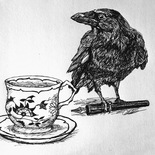 By Guest Blogger Z.D. Gladstone When I agreed to write a guest post for Camela on stalkers, it was with the understanding that I would be writing from a mental health perspective and not that of a novelist. Which is not to say that I am an expert on stalking. My background features a BA and an MA in psychology, as well as roughly a decade of experience working with youth and families struggling with mental illness and addiction. I never worked in an in-patient setting (read: hospital or similar) so my experience with previously diagnosed psychotic disorders was fairly limited. However, one of the insidious things about the kind of mental illness that can lead to stalking is how long it can fly under the radar. And I am very familiar with obsession, delusion, and the seeming inability to break unhealthy patterns of behavior. Stalkers are fascinating to average people (in a freaky way) because their mentality is so distant from our own. There is no single mental illness that results in the behavior known as “stalking,” although most stalkers would qualify for some kind of psychotic disorder. That’s because they typically suffer from some kind of delusion, which is central to any kind of psychosis. A delusion is a belief – a concrete, sure-as-gravity, unshakable belief – in something that is not true, and this causes significant personal and/or social distress. This delusion could be that the victim is in love with the stalker, or is cheating on the stalker, or intends to harm the stalker, etc etc. This is a topic that could (and has) fill multiple books. In this brief post, I will write about stalkers from two very different psychological perspectives: Freudian (because there’s just no beating the basics), and Behavioral. Please note that these will be very simplistic; both perspectives can offer far more complex and in-depth explanations than what we have room to explore in a blog. Freudian To the Father of Psychology, everything came back to early childhood experiences and the people most closely involved: the parents. Psychoanalysts believe the Mother is the first and most important female in the life of an individual. The love that an infant feels for his* mother is raw and all-encompassing, because his survival literally depends on its mutuality. It also blurs all kinds of sexual boundaries because the infant has not yet encountered most of the world’s social norms, which is why the Oedipal Complex evolves: the infant’s desire to kill the Father, and have the Mother all to himself. Freud believed that mental illness in adults was the result of unresolved issues in early childhood development—a concept we fully embrace today, although in a less Victorian-influenced framework. Through Freud’s perspective, the Stalker is an individual who never felt he received the necessary love and care from his mother, a rejection that could have proven fatal. This desperate, life-or-death emptiness remains in the unconscious mind into adulthood, until he meets someone who triggers those feelings. In the mind of the Stalker, This is the person who can fulfill me gets paired with This is the person with the power to destroy me. This becomes I need you, I want you all to myself, and also How dare you hurt me, I have to destroy you before you do it again. There’s nothing logical to it, because when these unconscious patterns are laid down the infant is incapable of logic; there is only raw, desperate need. And just as infants and toddlers are capable of illogical and horrible cruelty through their naiveté, so is the Stalker capable of these terrifying behaviors because he regresses to the infantile state of emotion. Behavioral Pure Behavioral Psychology is built on the idea that all animals – including humans – do things because they are rewarded for the action. There is only action and consequence. An infant cries, receives cuddles and food, and therefore will cry in the future because he wants the same reward. The reverse is true with punishment: a child touches a hot stove, burns his hand, and therefore will not touch a hot stove in the future. We use these principles to train our pets, teach our children, and even maintain international relations...with varying levels of success. So the simple explanation for stalking from a Behaviorist view is that the Stalker was at some point rewarded in some way for being around his victim. If he knows the victim personally (e.g. an ex-girlfriend or a co-worker) then their relationship was so powerfully rewarding that any closeness, any interaction triggers the same reward feeling. If he doesn’t know the victim personally – such as with a celebrity – his experiences in watching her shows/listening to her music/reading about her have been rewarding enough to inspire increased closeness. Even though the Stalker’s behaviors become strange and may result in punishment, the initial and lingering rewards are strong enough to overpower them. (If this seems illogical, just remember how many times you’ve had to punish your pet for eating out of the garbage.) These kinds of deeply ingrained patterns of behavior can be very difficult to break, because the Reward Systems are essential to survival, and – once again – defy logic. Conclusion While both of these perspectives are intriguing, it doesn’t take much pondering to realize neither displays the whole picture. Human beings are far too complex and diverse to be captured in any single psychological paradigm. Neurological imaging technology not yet been used in extensive research in the area of stalking, although some initial findings suggest the prefrontal cortex (right above the forehead) may not be doing its job of helping emotion and rational find common ground. But here’s what we DO know about the brain: the more often we repeat a thought or an action, the easier it is for the brain to repeat it. Like a popular bike trail where after a while, a rut appears, and that’s where the wheels just tend to go. Compare your handwriting now to what it was in the second grade—with repetition comes fluidity and ease. So the obsessive thoughts that feed stalking are self-perpetuating. Every time a Stalker allows himself to think about his victim, or look at her picture, or follow her, his brain becomes that much more likely to do it again. And again. And again. And whether that’s because of insufficient care when he needed it most in infancy, or because of a social reward he may or may not remember probably doesn’t matter that much to the person being stalked. *I will use the default male since the majority of stalkers are men, but it should be noted that women follow the same psychological patterns and are just as capable of committing the associated crimes. Z.D. Gladstone Z.D. Gladstone is an aspiring young novelist. Having spent most of her life in the Pacific Northwest, she whet her imagination on rainy afternoons--and her appetite on the warm, bustling kitchens of her family members. She uses her blog to share some of her creative work, both the literary kind (scribbles) and the culinary kind (munch). by Camela Thompson I remember being young and thinking that once I was old and could make all of my own decisions, my life would be made. If that little kid had known what I do now, she would have hid in her bedroom and never emerged. There are days when I wish someone would swoop in - someone as knowledgeable as I perceived adults to be at the time - and make the right decision for me. My intelligence hasn't diminished, I've just realized how little knowledge I've been able to glean in the vast scheme of things. That know-it-all kid has learned again and again that things are not simple. Getting ill really drove that home - not only when I struggled with decisions about my own health care, but when people felt compelled to inform me what I should be doing differently. What is Systemic Lupus Erythematosus? Systemic lupus is an autoimmune disease and is often referred to as an "invisible disease." Some of us get what is known as a malar rash across the bridge of our nose, but most of us show very few external physical symptoms. The majority of the symptoms are internal, even though they may be painful. To oversimplify the disease, systemic lupus is a dysfunction of the immune system that causes immune cells to see the body's own cells as invasive enemies that must be destroyed. This means that at any given time, the body may be triggered into turning on itself. Sometimes this destructive behavior is targeted toward a nervous system, joints, or organs. It's a difficult disease to diagnose because no two patients present the same way and the disease can mimic many other diseases. No one seems to understand what causes it (it's thought to be a combination of environmental factors and genetics because there are some genetic trends, but identical twins may not both have an active form of the disease). There isn't a simple blood test - lupus patients have a positive ANA, but so does a percentage of the healthy population. The other tests (APLs, Anti-Sma, Anti-dsDNA, etc.) may hep diagnose the condition, but only a small percentage of lupus patients have positive results for any of those tests. A combination of blood work and symptom history are used by experienced rheumatoligists, and in my experience, general practitioners may still question the diagnosis on any given day (which is when I refer them back to my rhuematologist). My first lupus flare up was frightening. The symptoms sucked, but not knowing what was happening? For a control freak, perfectionist such as myself, I had to wonder if some higher power was punishing me for actions taken in a past life. Because lupus is hard to diagnose, I wondered if it was in my head. So did other people. My first reaction at diagnosis wasn't the typical panic. I felt vindicated. "I told you something was wrong!" Even after being diagnosed by two experts (rheumatologists), I've had a general practitioner question me along with friends, coworkers, and strangers. I've been told that I have Lyme disease (which is an awful disease, but I've been tested multiple times for it) along with a myriad of other alternatives. Lessons Learned There have been some lessons driven home through experience. One of the first symptoms that comes with a flare up is unexplained and dramatic weight loss. I've been followed into the bathroom by well meaning coworkers who suspected bulimia after watching me pack down a huge meal, and lectured by well meaning survivors of eating disorders. I used to jump to the same conclusions when someone is painfully thin. Now I ask more questions or try to reserve judgment. I used to assume that good living and natural means of health care could cure anything. I've since learned that life choices make a big difference, but people can do everything right and still be sick. The medications have horrible side effects, but sometimes it is worth improving quality of life. If I get to the point where I can't even rest a sheet on my abdomen because of the pain, I'm taking prednisone again (sorry, Lance - I know the mood swings are horrible).
The biggest lessons I have learned are to not question someone's diagnosis and to never question their healthcare decisions. If they decide they need to take the latest medication, more power to them. If they want to sit in a smoke hut in Albuquerque, I hope it works. If they want to turn to prayer and fasting, I just hope their doctor gives them sound advice and they listen to the impacts something like that can have on a stressed body - but I hope it helps. If a friend has decided that they no longer want treatment and it's time to let go, I will sit by their side if they let me. On the inside I might be frustrated or angry because I'm selfish and want them in my life longer, but I understand that it is their choice and they didn't come to the decision lightly. What have you learned through illness? Have there been times when an assumption was disproved? What has frustrated you when you were ill? |
Camela ThompsonFreelance writer and Dark urban fantasy author featuring vampires with bite. My BooksCategories
All
Archives
July 2020
|


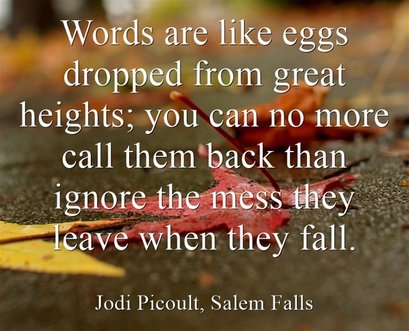
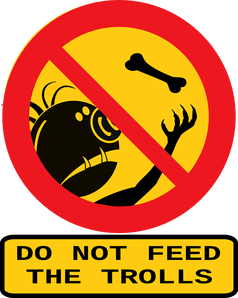
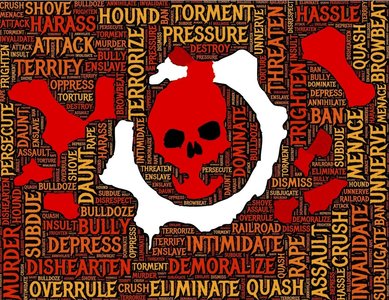

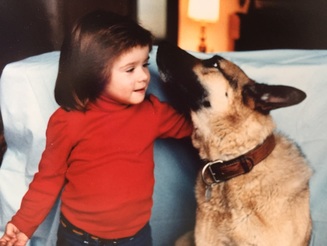
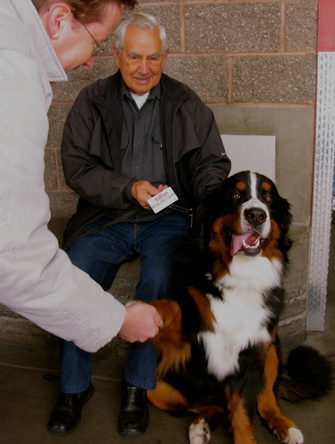





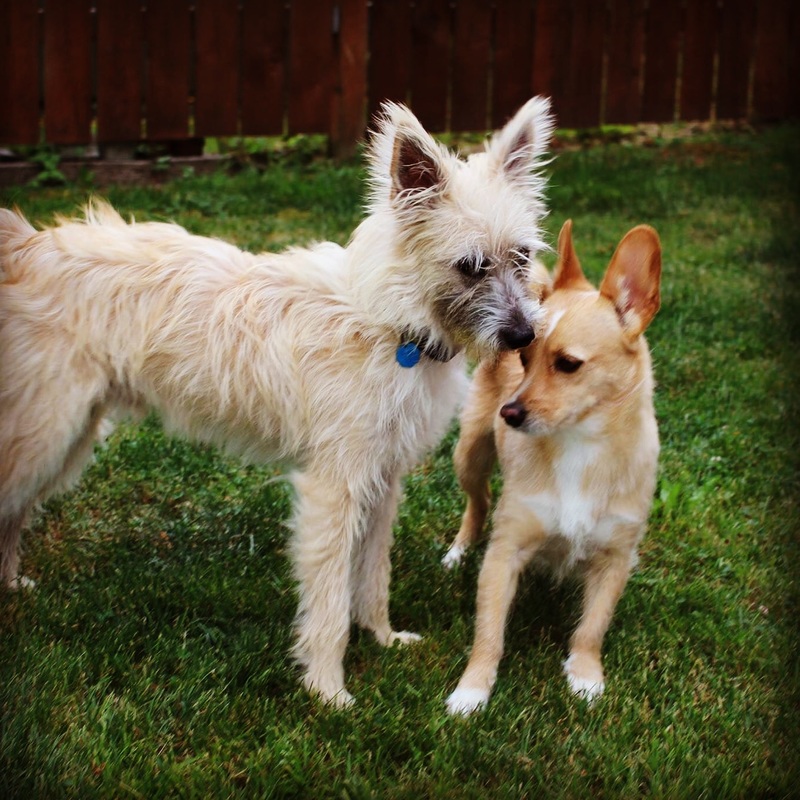
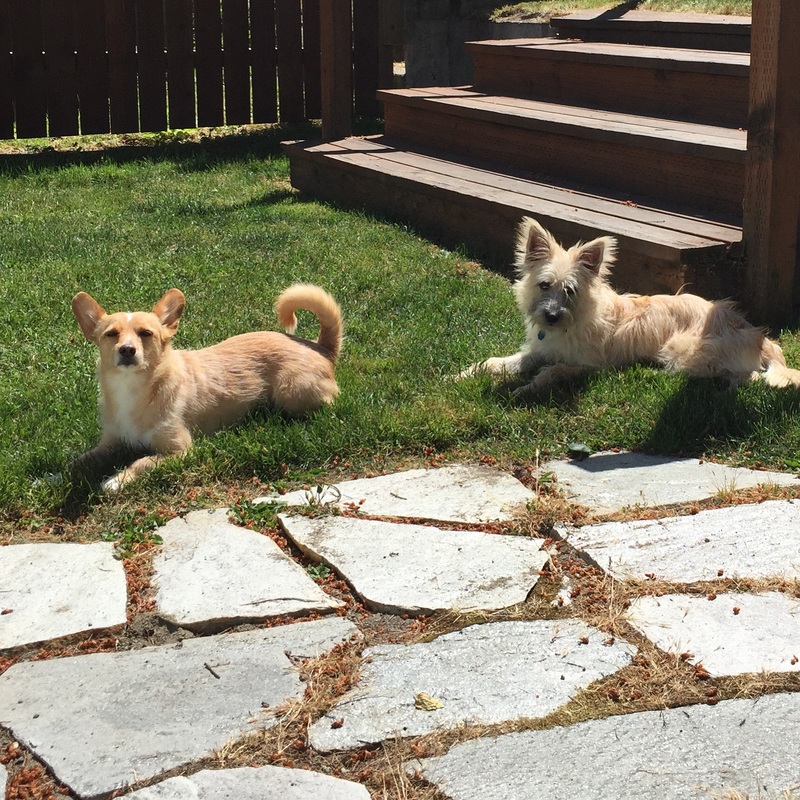
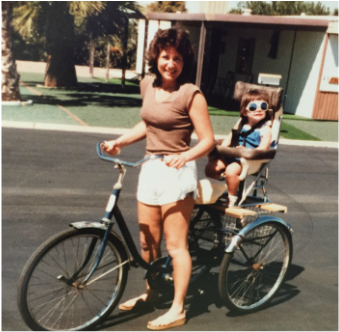
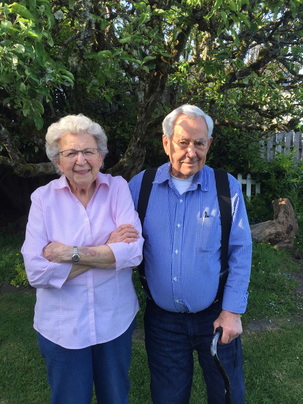

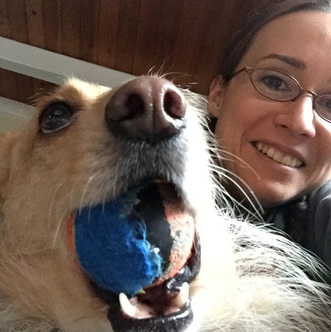




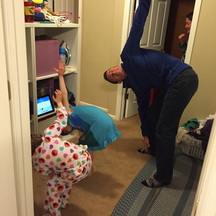
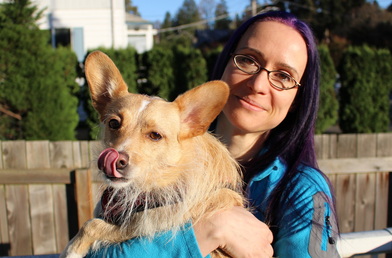

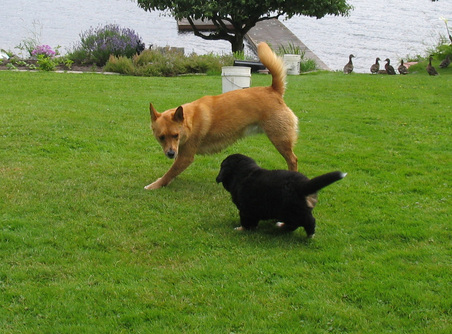
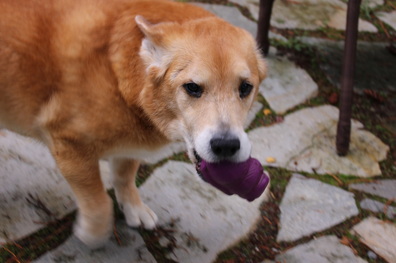
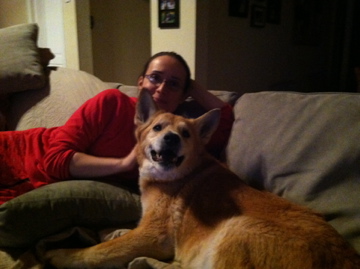

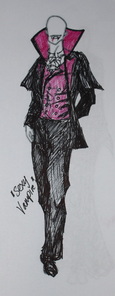
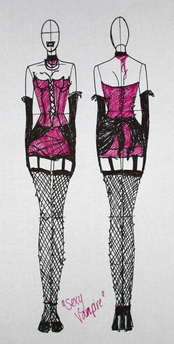
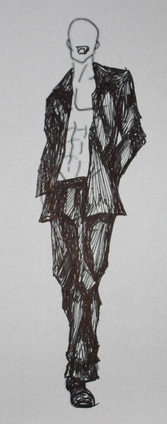
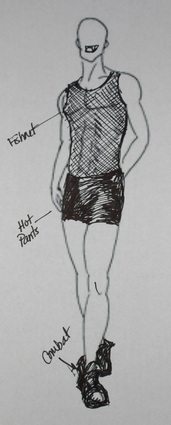
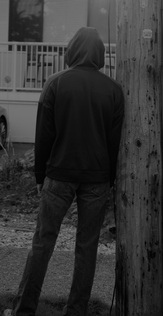

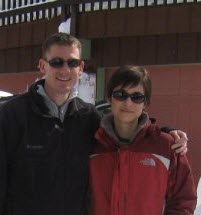
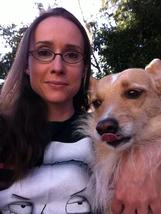
 RSS Feed
RSS Feed